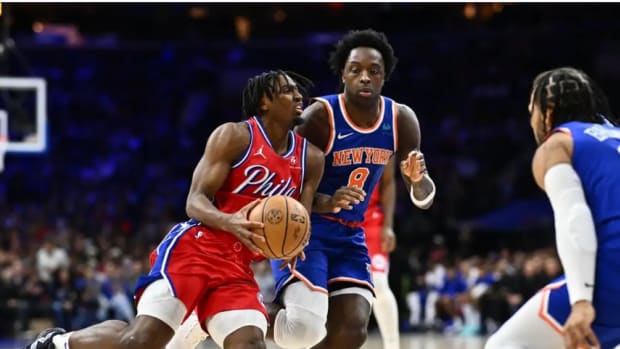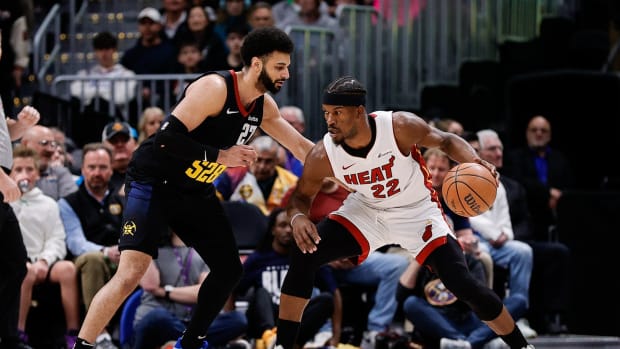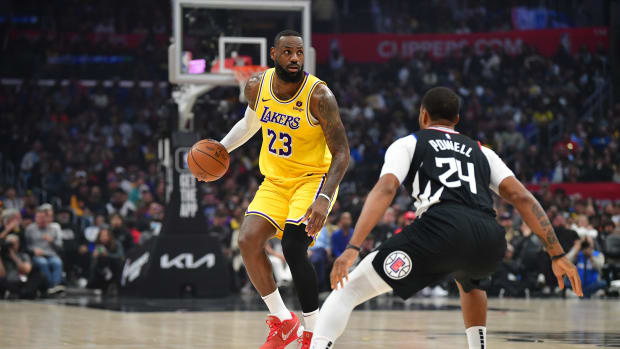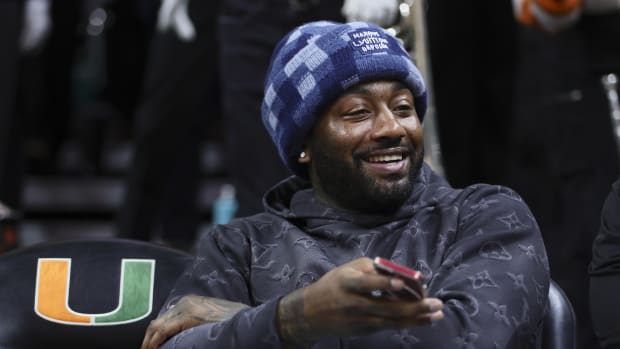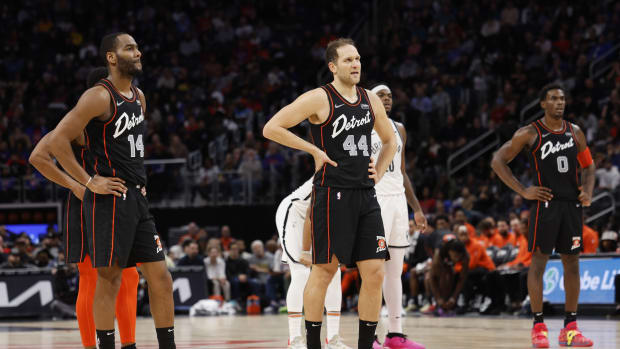NBA Responds to U.S. Senator's Letter About League's Relationship With China
The NBA has terminated its relationship with a Chinese-based basketball academy located in the controversial region of Xinjiang, according to a letter league executives sent to a U.S. senator.
Sports Illustrated has obtained a copy of the letter, sent on Tuesday to Sen. Marsha Blackburn (R-Tenn.). The note was a response to a June 30th letter Blackburn penned to NBA commissioner Adam Silver over her concerns regarding the league’s relationship with the communist country. In the NBA’s response, Mark Tatum, the association’s deputy commissioner and chief operating officer, answers three questions that Blackburn posed in her June letter, including one about the operation of a training center in Xinjiang, known as one of the world’s worst humanitarian zones.
“The NBA has had no involvement with the Xinjiang basketball academy for more than a year, and the relationship has been terminated,” Tatum wrote in a one-sentence response to the senator’s question.
In fall of 2016, the NBA opened one of three Chinese training centers in Xinjiang housing about 250 teenagers. Within the Xinjiang region, Chinese authorities are holding roughly a million Muslims in what reports have described as concentration camps, the most impacted of which are a Turkic-speaking minority known as Uyghurs. Last year, a member of the United Nations human rights panel condemned Beijing for turning the region into a “no rights zone.”
The NBA’s training center and the league’s close ties to China have sparked outrage among Congressional members. The Communist regime has abused human rights, squashed pro-democracy protests and hidden details on the coronavirus outbreak, Blackburn noted in her letter to Silver in June. On July 10, Sen. Josh Hawley (R-Missouri) sent a similar letter to the NBA, his focus more on China’s exploits in Hong Kong. The letter caused buzz after Hawley revealed on Twitter that an ESPN employee used a vulgarity in a reply to his office's statement announcing the letter. Adrian Wojnarowski later apologized for emailing Hawley a two-word response: “F*** you.” The network has suspended Wojnarowski.
The frustration from lawmakers over the NBA’s relationship with China continues to grow. In fact, in a statement to SI on Tuesday, Blackburn expressed her disappointment in Tatum’s response.
“It is inconceivable and disrespectful for Commissioner Silver to sidestep an issue that requires real leadership,” Blackburn says in the statement. “The reply from Deputy Commissioner and Chief Operating Officer Mark Tatum lacks the appropriate concern and responsibility that should accompany congressional correspondence. These technical answers do not address the larger questions about whether there is a conflict between their financial decisions and professed values.
“However, I am pleased that the NBA has publicly admitted for the first time that it has ended its involvement with the Xinjiang academy. I will continue my inquiries into questions about the Uyghurs and the NBA’s corporate partnerships at the appropriate organizational leadership levels.”
In the response, Tatum answered two other questions posed by the senator, one about a Chinese television station’s ban on NBA games and a second on the NBA’s relationship with Alibaba, a Chinese multinational technology company. Tatum says that China Central Television’s ban on airing its games has been a “significant” financial blow to the league, estimated in the “hundreds of millions.”
In five sentences, he outlines the scope of the league’s ties with Alibaba. The two have a multi-year contractual relationship “that primarily concerns the distribution of NBA content on Alibaba’s digital platforms in China.”
In closing, Tatum advises Blackburn direct all other inquiries to his attention, not Silver’s.
In her original letter, Blackburn wrote that the relationship between China and the United States is at a “pivotal moment” that could eventually lead to a new Cold War. While commending Silver’s prudent decision in March to suspend the NBA season, Blackburn believes that details on its relationship with China are imperative as the league reconvenes. “The actions of the NBA and some players have created an appearance that your league prioritizes profit over principle,” she wrote.
The NBA and China have a deep and long history, dating back to the 1980s, when former commissioner David Stern began forging a relationship with China Central Television (CCTV) to broadcast the league’s games. In the early 2000s, the NBA’s presence in the country boomed during the playing days of native son Yao Ming. Since 2007, the NBA has held preseason games in the country each year except one.
The relationship is worth millions each year, according to most estimates. But it hit a snag last fall, when Rockets general manager Daryl Morey created a stir by tweeting a message encouraging his followers to “stand with Hong Kong,” an independent region that for more than a year now has entered into pro-democratic protests against Beijing. The tweet, though quickly deleted, caused a now months-long divide between the league and China. CCTV has stopped all broadcasts of NBA games since the tweet in October, and Silver said earlier this year that the issue has cost the league a “substantial” amount that he described as “probably less than $400 million.”
In a statement, the league called the tweet “regrettable,” and its biggest star, LeBron James, described the message as “misinformed.” Lawmakers on Capitol Hill chided the NBA for its response, cowering to a communist government instead of supporting the democratic rights of the Hong Kong people.






























